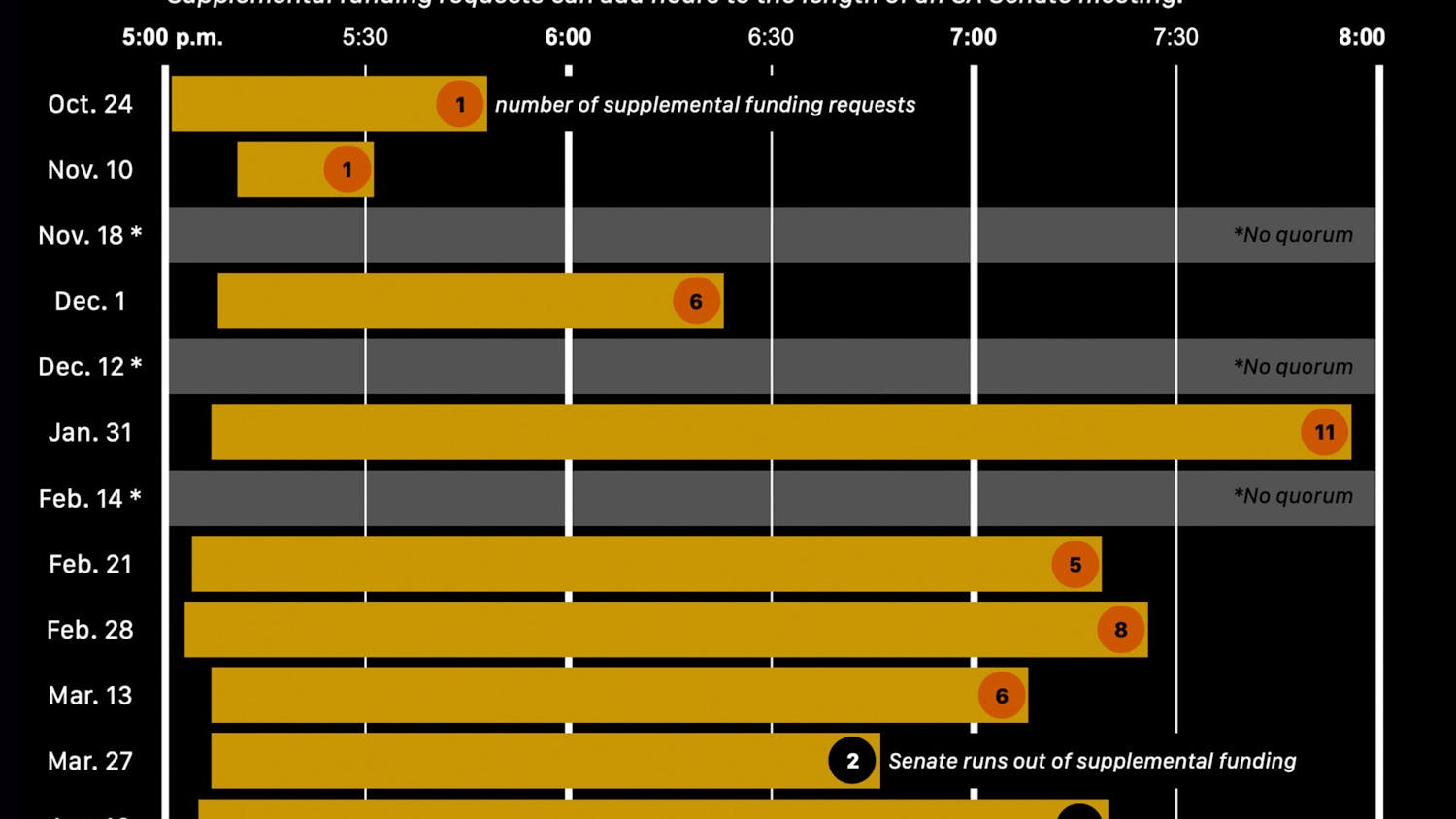"If it bleeds, it leads."
That's the age-old catch phrase heard around newsrooms across the country. Translation from journalese: If your story deals with injury or death, chances are, it's going to run on the front page.
You know what else will be on the front page with that story? The reporter's byline, his or her name, the little tag that can, for a new journalist, scream, "Hey, look over here, see what I did." Often, that name becomes more important than the story it precedes.
Journalism, like acting or politics or music, offers recognition to the few fortunate enough to enter the ranks. Just as with the other careers, that acknowledgment speaks to the novices. The young would-be reporters get stars in their eyes as they think of snagging that front-page story, having the neighbors notice their byline, seeing old friends turn green because X many people will see the reporter's name with the morning coffee.
Take it from us; it can be a great feeling to see your name penned above a front-page piece.
But it's rare that novice reporters, or newspaper readers, stop to think about what goes into that front-page story, about the responsibility that comes with ethical reporting. It's a common complaint that newspapers feed off negative news and would rather run a story about corruption than a feel-good story about kittens or puppies or candy.
Honestly, more often than not, it's true.
The reporter who scoops a story on a teenager killed in a gang shooting is more likely to take the front than a reporter who turns in a story on the mayor's latest initiative to turn money back into the community. More people will read about the gang shooting, editors think - and they're probably right.
Coming from the journalistic perspective, it's easy to lose sight of what's really going on when the reporter is on scene catching the news, scrambling for that last-minute scoop. That shooting's going to get the front page, the reporter thinks, and from a professional standpoint it's easy to consider it a good development for the reporter's career. Somewhere in the reporter's mind sneak thoughts of awards, acclaim, and of course, the byline.
But that teenager had a mother and a father whose lives are never going to be the same because their child died senselessly. Siblings will go to bed, wondering what happened to the sane world that used to be. Friends will never get the chance to catch up on the latest gossip or just hang out. Teachers will notice the empty seat in class and wonder what could have been done differently.
Reporters, just like everyone else, work in the real world. It's often brutal, but success in journalism is frequently built on the backs of tragedies like the fictional one above.
Should newspapers not cover a tragedy when it happens? No. The role of a newspaper in a community is difficult to define; the objective dispersal of news is the easiest and most obvious definition. But what constitutes "news"? What is objectivity?
More often than not, news is bad. Gang shootings, railroad accidents, strikes or shady political dealings - they all affect the community in a very real and serious way. If you live next door to the house where that teen lived, or the guy down the block who worked on that railroad, you want the newspaper to give you an accurate account.
But, inevitably, stories that center on controversial or "bad" news portray one or more parties in a less than ideal light. The parents of the kids in the gang, or the owners of the railroad that just went bankrupt, or the company whose workers are striking, or the politician exposed for accepting bribes - they are all players in the article, and they all have a vested interest in what goes into print.
Newspapers, and irresponsible journalism, can have an enormous impact, and it's easy to forget when you sit behind that computer, churning out copy, that real people - real families - are what every story boils down to.
A long-time journalist once said that no matter how great it feels to scoop the other paper or grab that story on A-1, a good reporter should never lose sight of the big picture. You will never understand what it is to be a reporter until you sit with the shooting victim's parents, while the parents cry and look at pictures. A life lost is not a byline gained.
Articles, editorials, cartoons, columns - it doesn't matter. The power of the printed word is substantial and often underestimated. Good journalists understand the responsibility vested in them by the sources they talk to, the editors who hired them and the readers who pick up the paper every morning and take it to the breakfast table. All of those people trust the reporter to remove him or herself from the story and present an accurate, objective account of the story, free of bias or slant or libel. Ambitions must be set aside, and personal goals ignored.
A good reporter is able to write a story in such a way that the reader can make up his or her own mind on the issue at stake; a bad reporter tells the reader what to think and tailors the facts to suit the occasion. Twisting a story to make it sensational may help the reporter's career, but reporters who do so have lost sight of their obligation and responsibility to their audience.
The tricky part, of course, is maintaining objectivity while not losing touch with the real world. As reporters, we program ourselves to find the story and report, free from emotional bias. Too often, the distance that the new reporter places between him or herself and the story translates to callousness.
It's easy to be objective if you think what you write doesn't matter - but it does.





